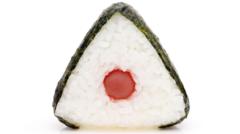Why Did a Japanese Chain Halt Rice Ball Sales Over Fake Expiry Dates?

Ministop's Onigiri Recall: What You Need to Know
In a significant move that has raised eyebrows across the nation, Japanese convenience store chain Ministop has suspended the sale of rice balls, or onigiri, and various deli items in response to findings of staff misconduct regarding food expiry dates. This article delves into the details surrounding the recall, its implications for customers, and the broader context of convenience stores in Japan.
The Scope of the Issue
Ministop, known for its focus on fresh and handmade food offerings, has temporarily halted sales of onigiri at over 1,600 of its locations. The decision came after the discovery that employees at several stores had been manipulating expiry dates. Reports indicate that staff either delayed applying labels until a couple of hours post-preparation or re-labeled items with incorrect expiry dates after they had already been put on sale.
The misconduct was not isolated to a single location but was reported across 23 stores nationwide, including bustling urban centers like Tokyo, Kyoto, and Osaka. This wide-reaching issue has prompted the company to undertake an extensive "emergency investigation" into its food safety practices.
Ministop's Response
In a public statement, Ministop expressed sincere apologies for the inconvenience caused to its loyal customers, particularly those who value its handmade onigiri and bento boxes. The company reassured the public that, as of now, there have been no reports of health issues stemming from the sale of these items, which offers some relief amidst the ongoing investigation.
Understanding Onigiri and Its Popularity
Onigiri, or rice balls, are a staple in Japanese convenience stores. They are favored for their portability and variety, typically wrapped in nori (dried seaweed) and filled with a range of proteins such as tuna salad, cod roe, or even seasonal ingredients. This grab-and-go meal option caters particularly well to busy commuters who rely on convenience stores for affordable and filling meals.
Given the rapid pace of modern life in Japan, where convenience and efficiency are paramount, the role of konbini (convenience stores) cannot be understated. They serve not just as places to buy food but also as essential hubs for daily errands, including grocery shopping and banking transactions.
The Impact of the Recall
The suspension of onigiri and deli item sales is likely to have a significant impact on both customers and the company itself. For patrons who rely on these quick meals, the absence of onigiri could lead to frustration and inconvenience. Moreover, Ministop's reputation as a provider of fresh, handmade food is at stake, and regaining customer trust will require transparent communication and robust corrective measures.
Food Safety in Japan's Convenience Stores
This incident raises broader questions about food safety practices in Japan's convenience store sector. The appeal of konbini lies in their commitment to freshness and quality, often preparing food items on-site. However, this situation underscores the need for stringent oversight and adherence to safety regulations to maintain public trust.
What Measures Will Be Taken?
In light of the recent misconduct, it remains to be seen what specific measures Ministop will implement to rectify the situation. Potential steps could include:
- Enhanced training programs for staff on food safety and proper labeling procedures.
- Regular audits and checks to ensure compliance with health standards.
- Improved customer communication regarding food safety practices and transparency in operations.
Consumer Trust and Brand Loyalty
For any retail business, particularly in the food industry, consumer trust is paramount. Ministop's handling of this crisis will play a crucial role in determining whether customers continue to support the brand. Establishing a transparent dialogue with customers about the steps being taken to resolve the issue will be essential in rebuilding confidence.
The Konbini Experience
Japanese konbini are renowned for their diverse offerings, which extend beyond just food. They often include services such as:
- ATM access for banking needs
- Online shopping pickups
- Bill payment services
This multifaceted role has embedded konbini into the daily lives of many Japanese people, making incidents like the Ministop recall particularly impactful. Customers who have come to rely on these stores for convenience and quality will be closely monitoring the situation.
What Lies Ahead for Ministop?
As the investigation unfolds, it will be critical for Ministop to not only address the immediate issues but also to consider long-term strategies to enhance food safety and operational transparency. The company must prioritize rebuilding its reputation while ensuring that such incidents do not recur in the future.
FAQs
What is onigiri, and why is it popular in Japan?
Onigiri is a Japanese rice ball often wrapped in nori and filled with various ingredients. Its popularity stems from its convenience as a portable meal option, making it a favorite among busy commuters.
What measures are being taken by Ministop regarding the expiry date issue?
Ministop is conducting an emergency investigation and may implement enhanced staff training and regular audits to ensure compliance with food safety standards.
How can consumers ensure food safety when purchasing from convenience stores?
Consumers can check packaging for expiry dates, look for any signs of tampering, and be aware of the store's reputation for safety practices before making purchases.
What should customers expect from Ministop in the future?
Customers can expect a renewed focus on food safety, improved communication regarding practices, and potentially new policies to ensure the integrity of food offerings.
Conclusion
The recent suspension of onigiri and deli items at Ministop marks a significant moment for the convenience store chain and its customers. As the company navigates this crisis, the emphasis on food safety and customer trust will be paramount. The steps taken in the coming weeks will determine not only the future of Ministop but also the broader implications for Japan's convenience store industry. Will Ministop emerge from this challenge stronger and more committed to food safety, or will it struggle to regain its place in the hearts of its customers? Only time will tell.
As we reflect on the implications of this incident, it raises an important question: How much do you trust the convenience store food you consume daily? #Ministop #Onigiri #FoodSafety
Published: 2025-08-19 07:01:25 | Category: world



